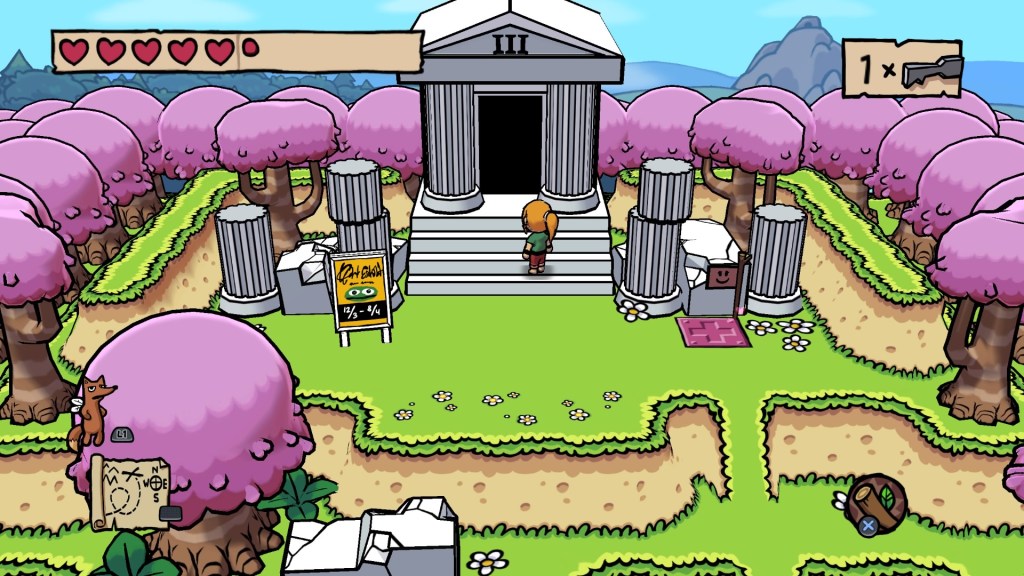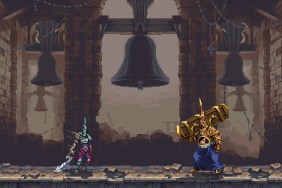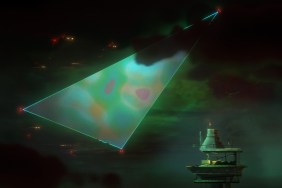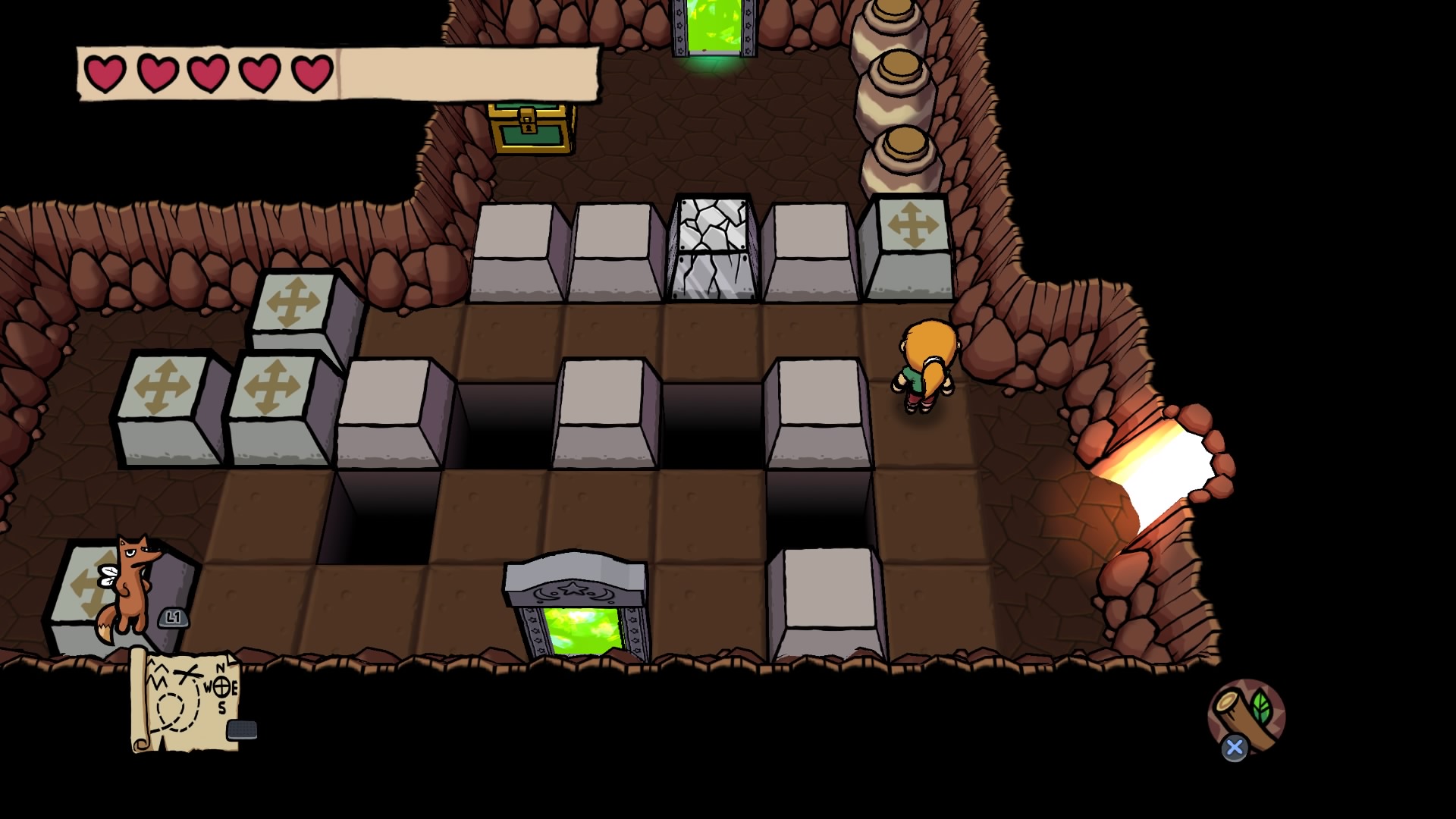
There is just something about top-down adventure games that have a special place in my heart. Even if you are the most stalwart PlayStation fanboy, you cannot deny that games like Nintendo’s classic Zelda franchise established an amazing new playground for players to explore. One title that has drawn a significant amount of inspiration from the aforementioned series was the indie release, Ittle Dew. Though the original installment only hit PC, iOS and Wii U, the sequel is adding a third dimension and a new platform: PlayStation 4. Thankfully, everything that made the first outing so much fun is still on full display the second time around.
A Grand Adventure
In Ittle Dew 2, Ittle and her companion Tippsie once again find themselves marooned on an island, desperately looking for a way to escape. Okay, maybe “desperately” may be slightly too dire of a description. In fact, now that I think about it, there isn’t a single moment of the narrative where either the titular character or her silly sidekick even remotely express any form of worry. That lighthearted attitude is what imbues the experience with genuine joy and makes the game’s world so much fun to explore. It is all just a good natured adventure, with healthy doses of sardonic humor liberally mixed in throughout.
It doesn’t take long before the duo realizes that they need to build a raft in order to replace their existing vessel. At this point their primary goal becomes tracking down the eight pieces of wood necessary to build a raft. In a perfect mocking style, Tippsie then retorts back that they should just save all the hassle of exploring and just cut down a tree instead. This is countered by Ittle, which points out that rafts don’t grow on trees, so they will need to look elsewhere. Exchanges like this are scattered all through the campaign of Ittle Dew 2 and are definitely a treat for players that are actually willing to take the time to read them.
The pair set off to explore the island that they have somehow crashed their raft smack dab into the middle of. Don’t ask. It isn’t supposed to make sense. This is once again the game’s bizarre storytelling taking center stage. Ittle and Tippsie begin their quest to not only discover the island’s numerous regions, but also locate every setting’s dungeon. Survival in the over world isn’t exactly a foregone conclusion either. Danger lurks around every corner, and it is up to the player to stay alert, or face the consequences. Mercifully, there is a more than generous checkpoint system in place that respawns Ittle at the entrance of any zone, with all progress being retained. Especially when facing a seemingly overwhelming obstacle in a dungeon, this system proves to be a tremendous blessing.
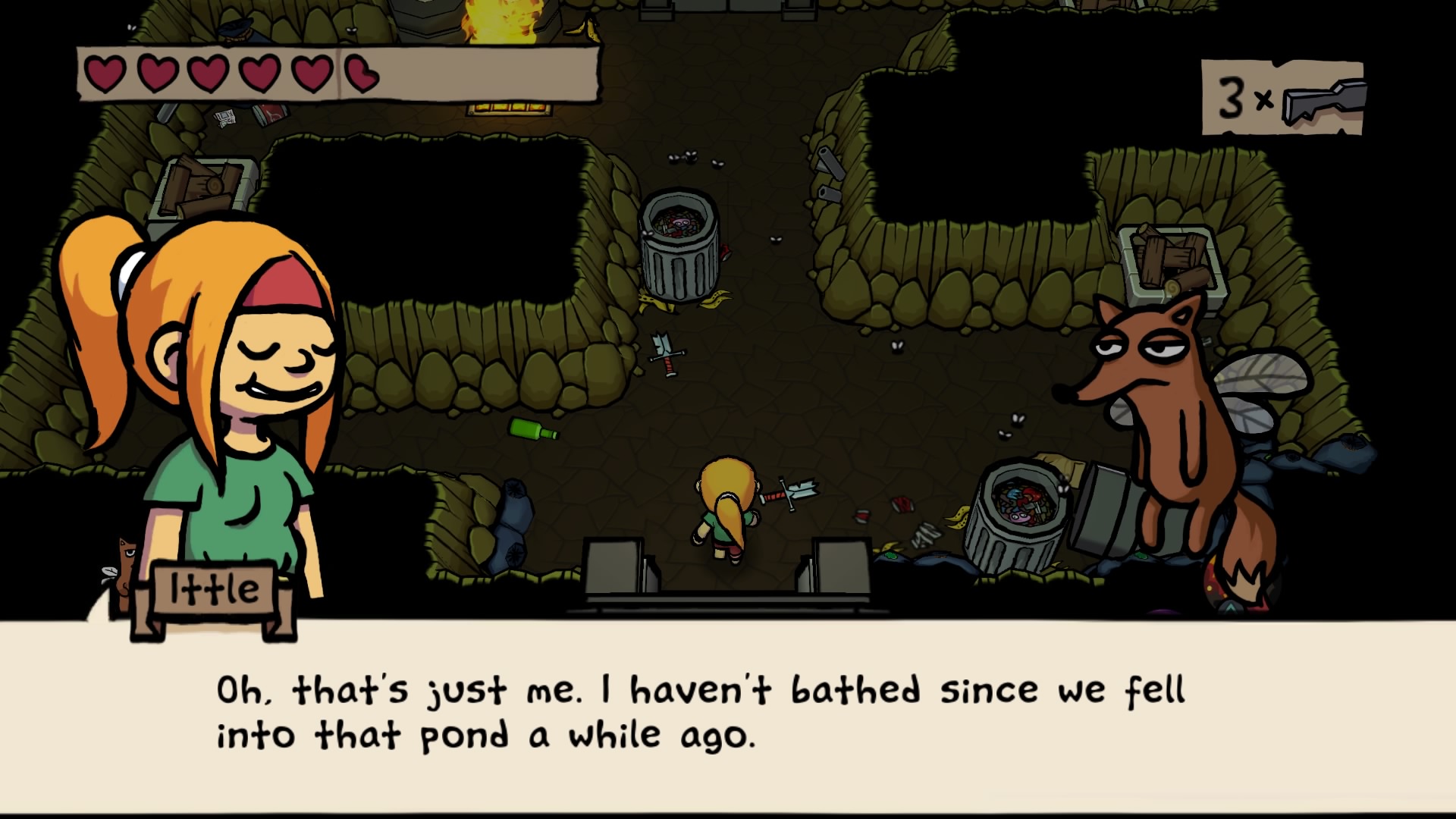
Treading Lightly
Traversing the world isn’t just about action and adventure, however. There are plenty of puzzles, hidden areas and world-linking warps, which are effectively used to mix up the gameplay. Never is this more on display than in the game’s seven dungeons. Right from the start, the main over world is left unhindered. As long as the player can survive the challenges being thrown their way, they can complete dungeons in any order they choose. Obviously the eighth and final dungeon is a beast in and of itself, but really, this is more about the quest than the ending.
Every dungeon is chock full of interesting items, confounding challenges and difficult platforming. In order to prevent excessive backtracking, the specific items needed to solve puzzles in any given dungeon can be found somewhere within its walls. Considering that the game has four different items that can be used to solve puzzles, this means that there are occasionally items that appear in more than one setting. To the developer’s credit, they actually use this as an opportunity to increase the power of said item, instead of just throwing the duplicate item away. This is a smart, player-friendly touch that also further encourages and incentivizes exploration.
The puzzles themselves pose their own set of trials. Though early objectives seem excessively simplistic, it doesn’t take long for the difficulty to ratchet up dramatically. That said, there is never anything that feels insurmountable. If anything, the reward of solving the next mind-bender acts as a compelling motivational tool. There are instances where it can be hard to figure out a straightforward solution, but there always has to be a way to overcome. Additionally, due to the design of each den’s interlocking and interweaving rooms, there are usually at least two different avenues to progress forward through the map.
[imagebrowser id=4179]
Each underground lair’s platforming also mirrors the increasing difficulty of puzzles, without crossing a line and becoming unfair. If a wrong step was taken, ultimately resulting in a death plunge, it is usually due to a silly mistake on the player’s side. In another very welcome decision, dying during traversal will only cost a single unit off of the health bar and results in a respawn at the entrance of the room. However, don’t take this generosity for granted. If the whole health bar is depleted, the respawn with land the player back at the entrance of the entire dungeon.
Upon successfully navigating the challenges of each stage, players are treated to boss battles of varying levels of difficulty. Personally, I never found these to be excessively troublesome to overcome. Within two or three deaths it becomes readily apparent what each boss’s attack pattern is and how to utilize the existing items in the arsenal to dispatch them. Once the boss has bit the big one, Ittle is rewarded with one of the coveted pieces of lumber.
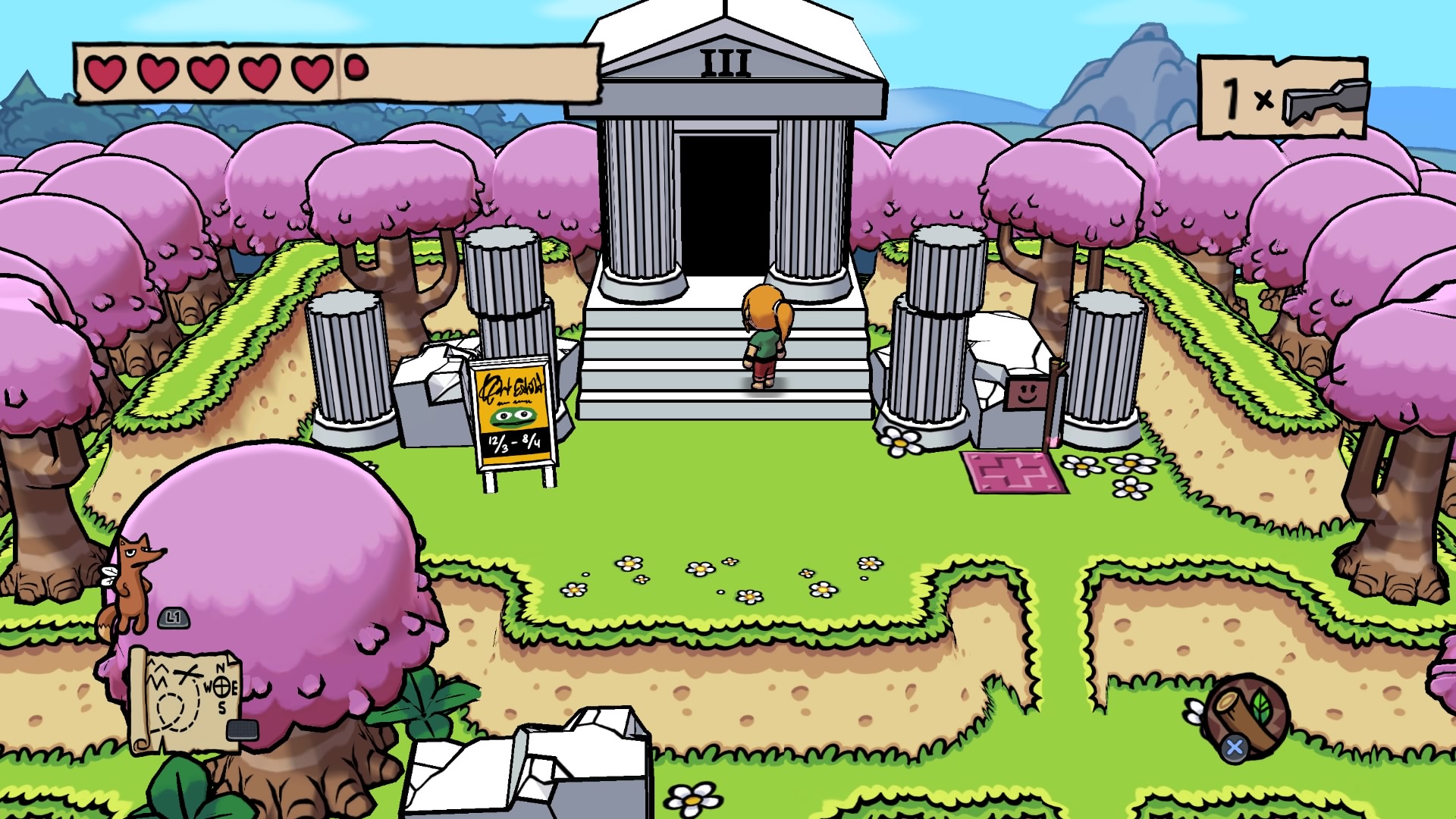
Presentation Makes a Difference
One of the most compelling components of Ittle Dew 2’s design is how approachable it both looks and feels in action. The adorable cel-shaded cartoon aesthetic suits the setting and presentation perfectly. Additionally, the mapping of all the action commands to the face buttons helps keep things simplistic enough for anyone to pick up and instantly be proficient. Don’t get me wrong. Combat isn’t easy, per say, but once you have discovered the weaknesses and tendencies of each enemy type, it does tend to reveal a lack of depth when it comes to enemy tactics. This deficiency is compensated for by sending waves of enemies on the attack simultaneously.
There are so many things to like about Ittle Dew 2. Everything from the quippy, hilarious banter to the unique yet traditional presentation, helps drive home the developer’s respect for the titles that inspired it, while also showing the desire to take a slightly different path than its predecessors. It is impossible to not fall victim to Ittle’s charms throughout the course of the slightly abbreviated campaign. This is an adventure that is absolutely worthy of your time. All it will take is a single dungeon before it has wormed its way into your heart.
Ittle Dew 2 review code provided by publisher. For more information on scoring please see our Review Policy here.
-
Amazing art design
-
Hilarious banter between Ittle and Tippsie
-
Approachable combat and platforming
-
Enemies tend to lack any variety in their combat tactics
-
Boss battles are too easy
